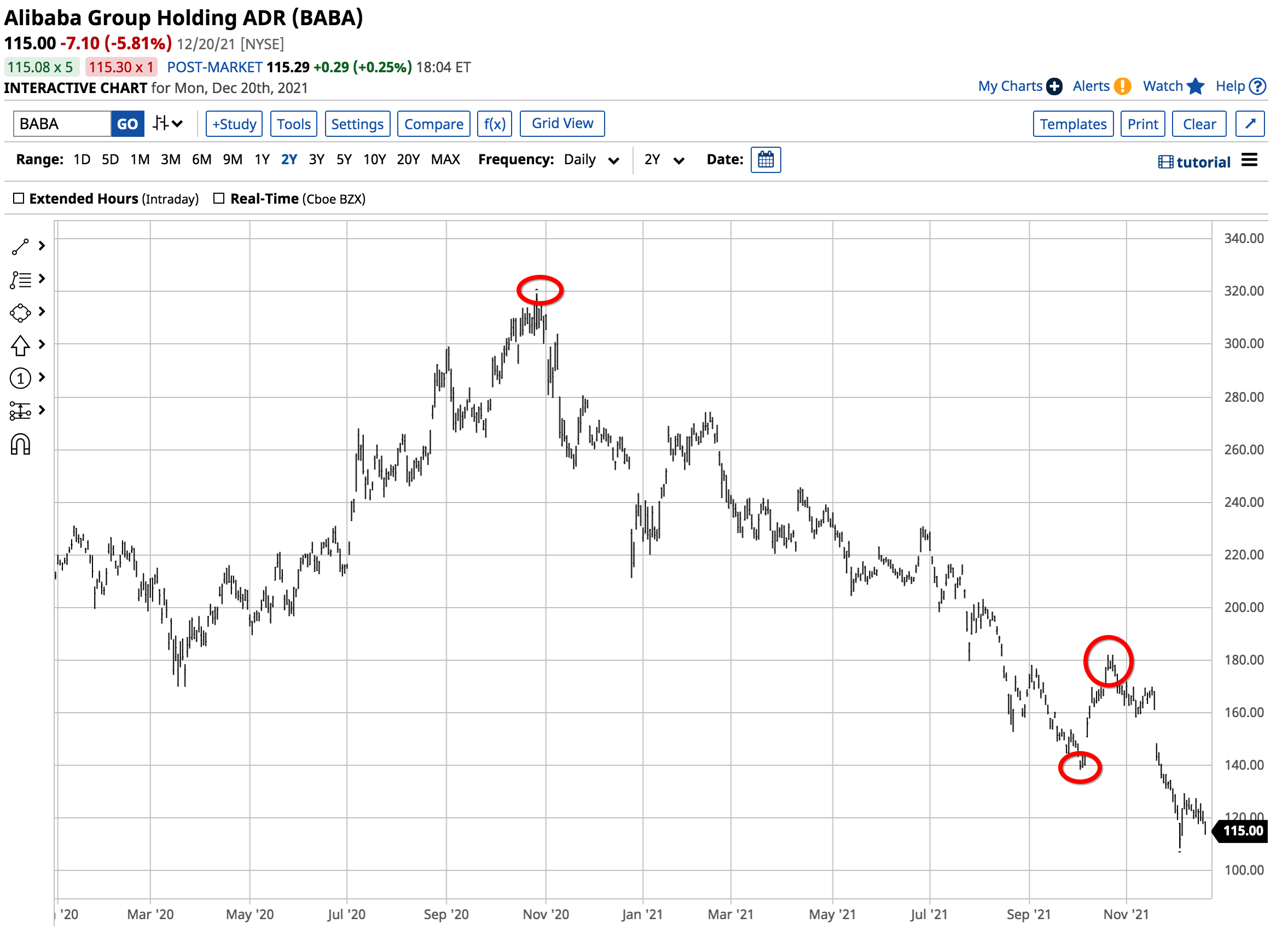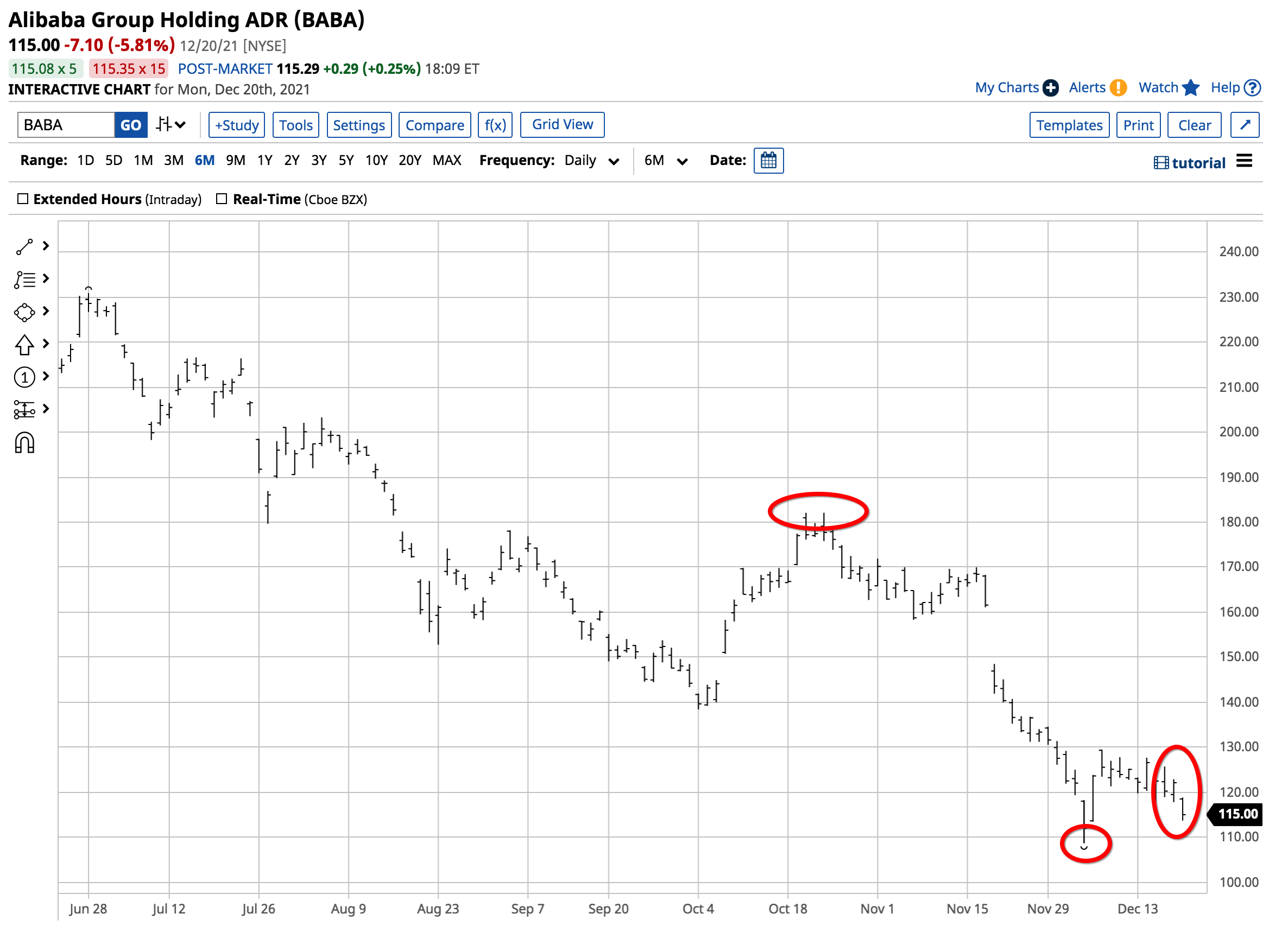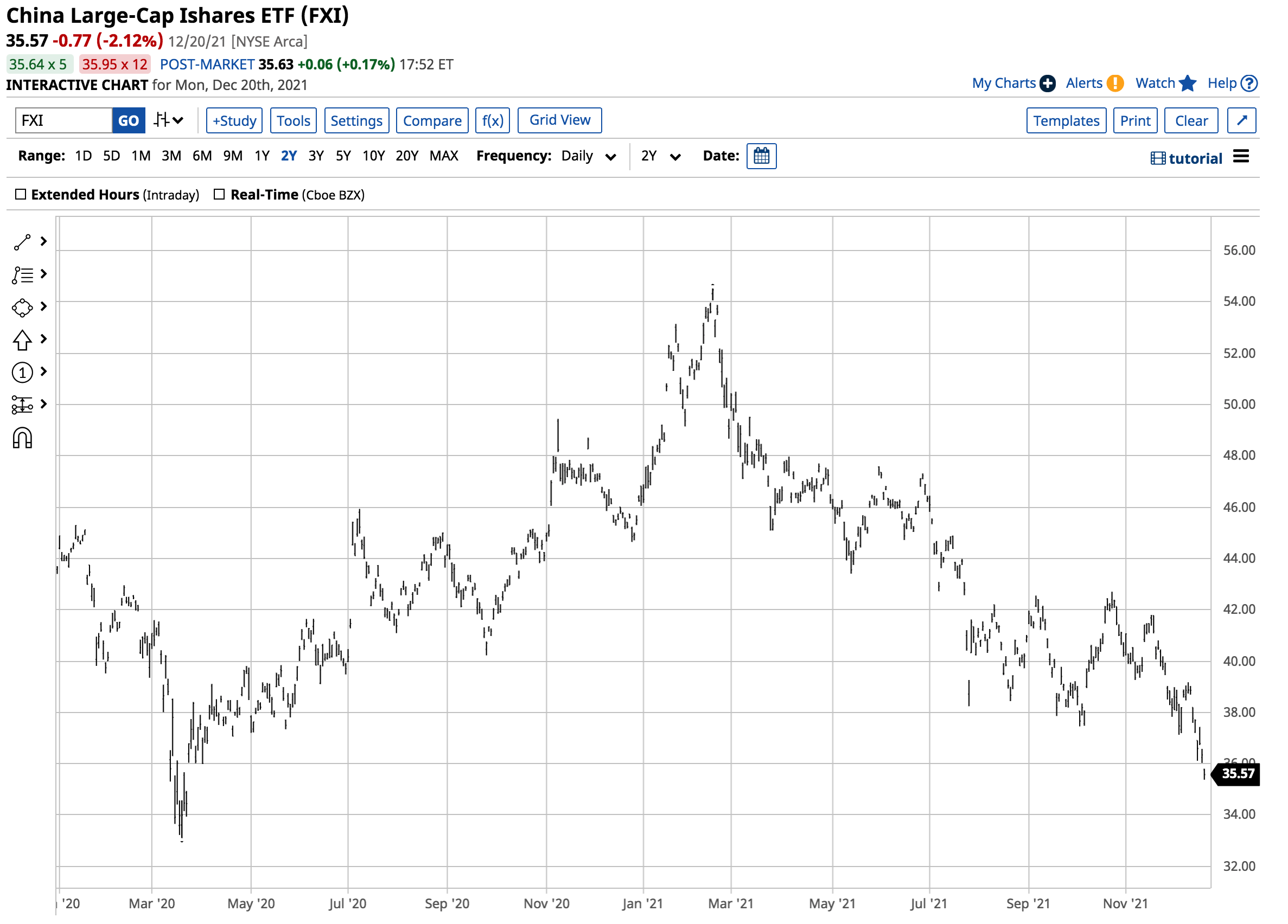This article was written exclusively for Investing.com
- Huge rally on Munger’s buying
- BABA buying runs out of steam
- Buying in early Q4 was revealed; will we now learn he sold in early Q1?
- Chinese stocks look ugly
- Value but with massive risk for 2022
In November, I wrote about a disclosure at the beginning of Q4. Charlie Munger, Vice Chair of Berkshire Hathaway (NYSE:BRKb), who is also Warren Buffett’s business partner, bought shares of Chinese internet retail giant Alibaba Group Holdings (NYSE:BABA) in Q3. At the time the shares were inexpensive compared to US stocks.
Mr. Munger and Mr. Buffett are value investors—they look for underpriced shares that have strong fundamentals. The market tends to follow them into and out of whatever it is they're holding. The foray into BABA shares was a high-profile move when Chinese stocks were under intense pressure.
The US-China relationship has deteriorated over the past years. While the two economies are mutually inclusive, the political ideologies of the two countries are mutually exclusive.
Mr. Munger saw value in BABA shares, which soared from the Oct. 4 low to the late October high. But the buying ran out of steam, and the stock declined to new lows in November and continued lower in early December.
Charlie Munger bought the dip in Q3. We will only find out if he sold the Q4 rally when the next round of disclosures comes to light in early 2022.
Huge rally on Munger’s buying
Alibaba is China’s answer to Amazon (NASDAQ:AMZN). BABA reached a high of $319.32 per share on Oct. 27, 2020, then turned lower and made lower highs and lower lows, reaching $138.43 on Oct. 4, 2021.

Source: Barchart
The chart highlights the decline which reached an initial bottom of $138.43 in early October, the start of Q4 2021. Meanwhile, news that Warren Buffett’s sidekick, Charlie Munger, bought shares in Q3 lifted BABA shares. The disclosure caused other value investors to follow Mr. Munger, boosting shares of the Chinese large cap 31.5% to $182.09 on Oct 20 and again on the 22nd.
BABA buying runs out of steam
The double top in BABA shares led to a correction that turned into a resumption of the bearish trend.

Source: Barchart
The short-term chart illustrates the meltdown in BABA shares since early October as they slumped through the Oct 4 $138.43 low to $108.70 on Dec. 3, a 21.5% plunge. BABA was trading at the $115.00 level on Dec. 20, a lot closer to the Dec. 3 low than the late October high.
Buying in early Q4 was revealed; Will we now learn he sold in early Q1?
Finding value has been challenging via the US stock market, so Munger turned to one of the most successful Chinese companies listed on the New York Stock Exchange.
Munger and Buffett are not short-term traders, rather, they tend to buy-and-hold. But it will be interesting to see if BABA's awful price action in Q4 caused Munger to throw in the towel on his Alibaba investment.
China is the world’s second-leading economy and is nipping at the US’s heels for the leadership position. However, tensions between the US and China continue to escalate and the potential for delisting of Chinese companies on US exchanges has caused many value seekers to avoid anything related to China over the past year.
Chinese stocks look ugly
The iShares Chinese Large-Cap ETF (NYSE:FXI) holds shares in the leading Chinese companies that trade on US exchanges. The most recent top holdings include BABA and a host of other Chinese stocks. At $35.57 per share on Dec. 20, FXI had $4.869 billion in assets under management and trades an average of over 33.8 million shares each day. The ETF charges a 0.74% management fee.
The US S&P 500 index moved from 3,756.07 on Dec. 31, 2020 and was at the 4,568.02 level on Dec. 20. The index was 21.6% higher, with only days to go before the close of 2021. 
Source: Barchart
Over the same period, FXI went in the opposite direction. It closed at $46.43 per share at the end of 2020, dropping to $35.57 on Dec. 20, a 23.4% decline in 2021. Chinese stocks may offer value, but the risk is always a function of potential rewards, as Charlie Munger learned in Q4 2021.
Value but with massive risk for 2022
China and the US are at odds over Taiwan and the South China Sea as we head into 2022. The Chinese government continues to expand its sphere of influence worldwide and is cooperating with Russia, opposing US and NATO policies. Human rights issues have been divisive. As well, there continues to be an ongoing crackdown by China's government securities regulators on the country's tech sector companies.
When it comes to Chinese companies listed on US exchanges, US regulators find Chinese corporate structures challenging and misleading. China’s political agenda is not in step with raising capital in US markets. As the US and China are at odds, Chinese companies could move away from the US by mutual consent over the coming months and years.
Chinese stocks are trading at substantial discounts to US companies. However, the price and trend of any asset is always correct because it is the level and direction where buyers and sellers meet in a transparent environment, the market.
As we head into 2022, Chinese stocks remain out of favor. Early next year, we will find out if Charlie Munger is still a BABA fan or if he took profits in late October when the market followed him into the volatile stock.
Chinese stocks may be inexpensive, but that does not mean that they cannot get even cheaper during the coming year. The trend is bearish and likely will remain so. As the much-used expression states, the trend is always your best friend in markets across all asset classes.
